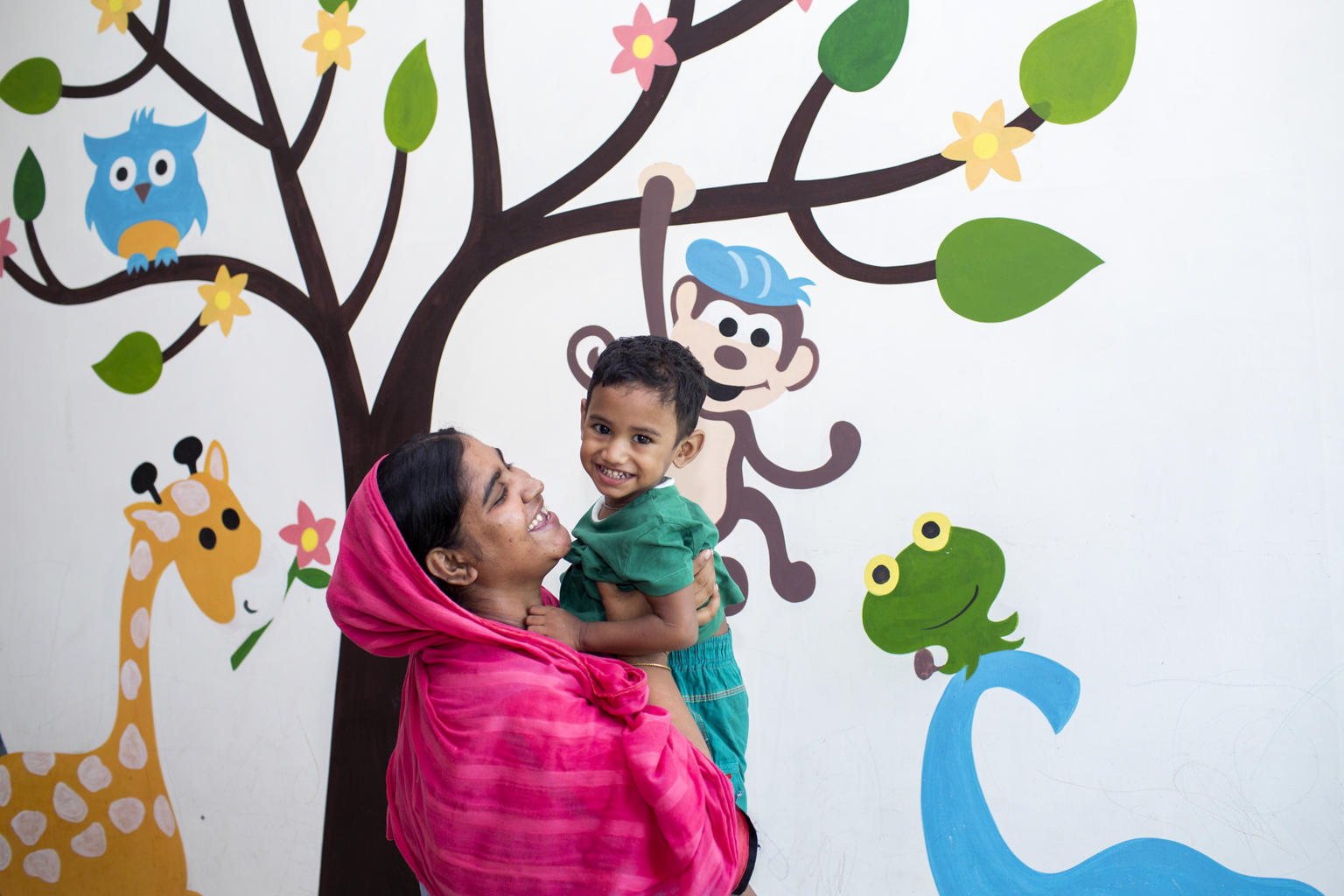
Parents and caregivers play a central role in shaping their child’s lives from the moment they are born. They are at the frontline of children’s development, influencing play, education and safety. They can also be the first to spot signs of violence or trauma in children and are key in preventing and ending violence.
1 June is the Global Day of Parents, with Parenting Month taking place all of June. The international community is coming together to recognise the role of parents, caregivers and families, and this Parenting Month, End Violence is joining partners to call for better support for parents so that they can ensure safe childhoods for children.
The Partnership actively advocates for and facilitates evidence-based parenting support, positive parenting programmes and knowledge and evidence. From policy calls to projects reaching parents and caregivers across countries directly, here is some of the diverse action underway across the world:
Advocating for policy change and parenting support
Evidence has shown that programmes to support parents and caregivers enhance child development and mental health, and reduce violence against children.
Parenting support is a key part of the INSPIRE Seven strategies for ending violence against children, developed by End Violence and ten agencies with a long history of child protection work. These evidence-based strategies reflect the contributions of technical experts and serve as a technical package and guidebook for implementing effective, comprehensive programming to combat violence. The ‘P’ in INSPIRE is the strategy for parenting and caregiver support, and the package provides ways of enabling this, including home visits, community education programmes and activities, and other evidence-based programmes.
The Together to #ENDviolence policy proposal for equipping parents and caregivers to keep children safe at home, online and within the community is an evidence-driven call to governments to support positive parenting. It calls on all governments to scale up policy frameworks and the uptake of informed positive parenting programmes.
This policy call was reinforced by international leaders at the Together to #ENDviolence Leaders’ Event. Among them was Catherine Russell, Executive Director, UNICEF, who stressed the importance of supporting parenting programmes and social protection. She cited the importance of evidence-based interventions, stating that as few as five home visits from a trained nurse or community worker to teach parents about the importance of attachment, play and positive discipline are proven to reduce harm and improve safety.
We need to keep pushing for investments in parenting… Parenting support should be universally available.
Joining forces to equip parents with resources around the world
On the ground, the Global Partnership to End Violence Against Children, the Early Childhood Development Action Network (ECDAN), UNICEF, WHO and Global Parenting Initiative (GPI) are working together through the Global Initiative to Support Parents (GISP) to promote universal parenting support for all families that want or need it.
These agencies have come together to pool expertise, and the initiative works with governments, civil society partners, researchers and donors to promote universal access to parenting support so that every child can receive the support they need during the first two decades of life as well as across the life course.
Global leadership and domestic action
Pathfinding countries, those that have made a formal commitment to end violence against children, including through the INSPIRE strategies, are taking important action within and across their borders.
Within the context of the COVID-19 crisis, the Government of Japan provided support for scaling-up evidence-based parenting programmes in fellow Pathfinding countries Uganda and Kenya. Japan supported the strengthening of national capacity to scale-up cost-effective parenting programmes through a project implemented by the End Violence Partnership, UNICEF, Parenting for Lifelong Health and other partners. In less than 2 years, each country was able to build or reinforce systems and establish guidelines and resources for national parenting programmes, achieved largely through frontline workers – from government, faith-based and civil society organisations – that reach deep into communities. Read more about the progress of the programmes.
And with continued support from the Government of Japan, End Violence will now work on strengthening the national capacity to scale positive parenting and reduce violence in five countries in Sub-Saharan Africa – Burkina Faso, Côte d’Ivoire, Ethiopia, Nigeria, and Zimbabwe. The projects adopt child-centred approaches and build on ongoing initiatives and context-specific needs.
Resources and action
Providing access to free, evidence-based parenting support to every parent, everywhere, is important to ensure that caregivers are equipped with the knowledge and tools to protect their children from violence and abuse.
The Parenting for Lifelong Health Team along with End Violence and other partners have developed a suite of affordable parenting programmes aimed to prevent violence against children, including in low- and middle-income countries and conflict and emergency settings. This easy-to-understand evidence-based information has been translated into an array of languages to reach wide audiences, such as in Ukraine and Sudan.
Explore evidence-based pareting resources.
Image: © UNICEF:UNI253566:Himu_Bangladesh